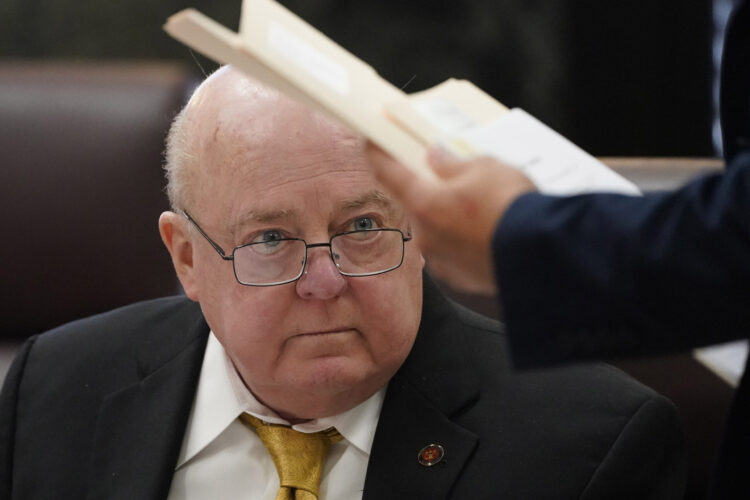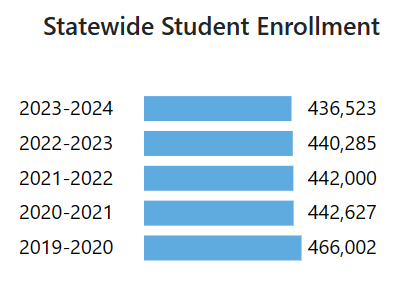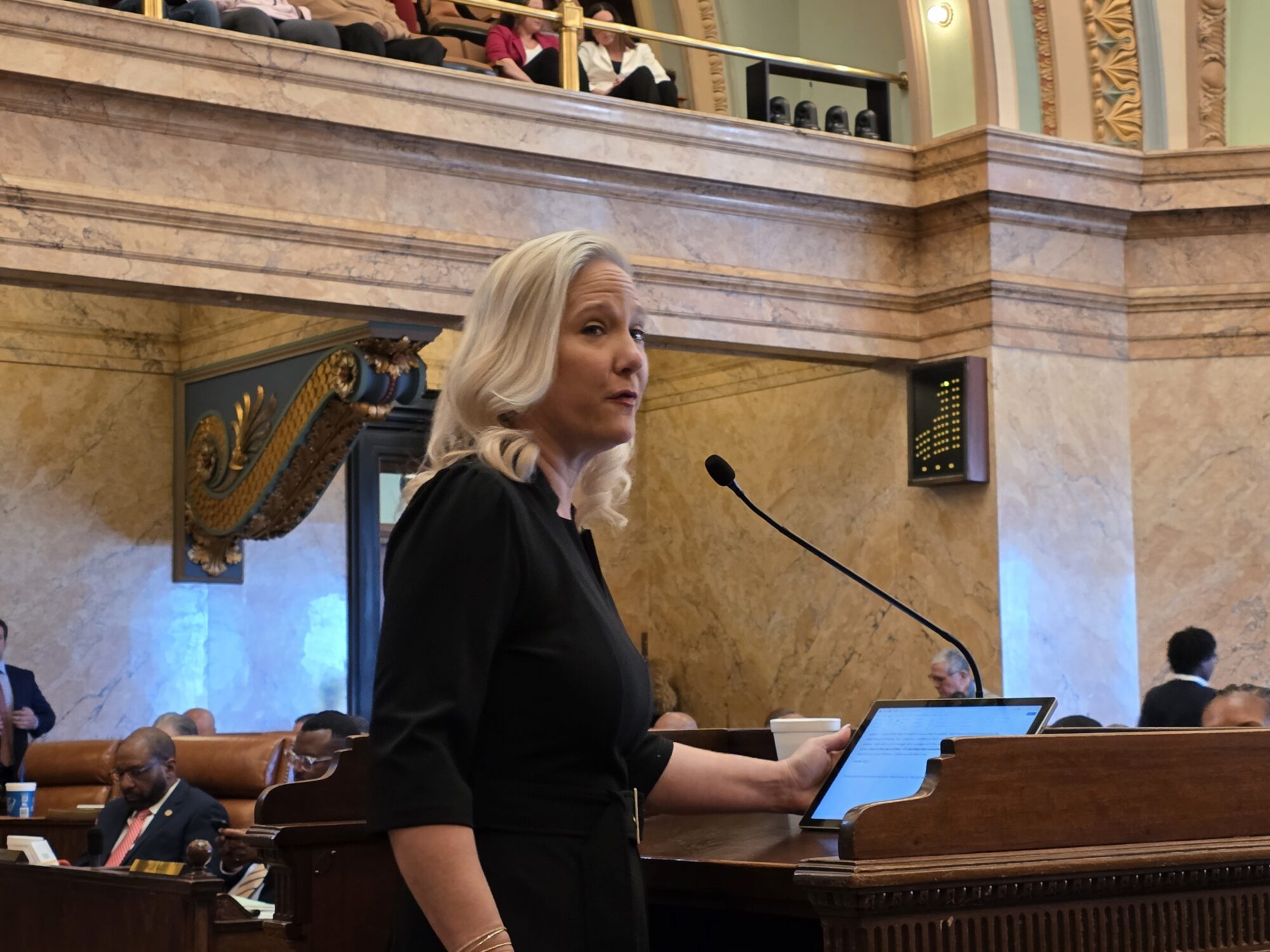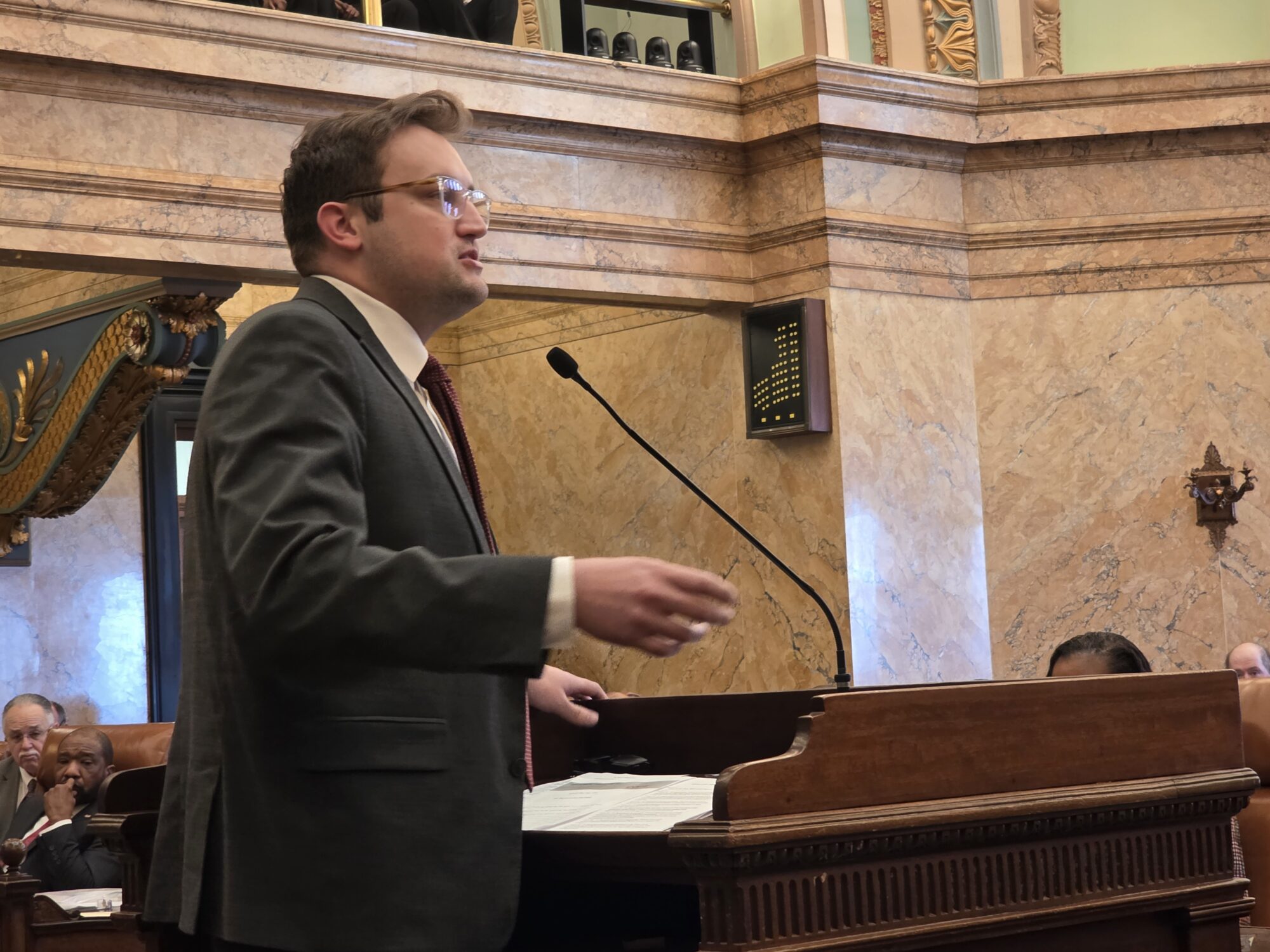
Chairman John Polk, R-Hattiesburg, glances up at a completed committee report that he is proof reading in the Supreme Court Chamber at the Capitol in Jackson, Miss., Monday, March 29, 2021. (AP Photo/Rogelio V. Solis - Copyright 2021. The Associated Press. All rights reserved.)
- State Sen. John Polk, citing declining K-12 and university enrollment as driving factors, says the Magnolia State has too many universities trying to educate too few people.
A new bill introduced in the Mississippi Senate may force the Board of Trustees of State Institutions of Higher Learning to pick three institutions under its umbrella for closure should SB 2726 become law.
State Senator John Polk (R), now in his fourth term in the Senate, believes Mississippi having eight public universities no longer makes sense.
“We have too many universities trying to educate too few people,” Senator Polk, the bill’s author, told Magnolia Tribune. “So, all of them have a mission but those missions could be moved to the other remaining universities if they close three, if the bill passes.”
Polk said the cost savings to the state would be significant.
“It would also create, if you took at the appropriations of the three least appropriated universities, you would still save over $50 to $80 million a year that you could give to the other five that’s left to spread over their needs,” Polk added.
The Lamar County lawmaker points to an enrollment cliff at some of the universities, while also citing that there are fewer high school students and fewer graduates across the state overall.
“That does not continue to make sense to continue to have eight universities,” said Senator Polk.

Mississippi Department of Education data shows K-12 enrollment is on the decline in the Magnolia State. Since the 2019-2020 school year, there are nearly 30,000 less students in Mississippi public school classrooms.
In addition, data from the Institutions of Higher Learning on university enrollment shows that since 2017 undergraduate enrollment has declined from 61,149 students to 55,474 in 2022.
The universities on the decline include Alcorn, Delta State, Mississippi Valley, The W, Jackson State and Southern Miss. Ole Miss and Mississippi State are the only universities showing enrollment gains during that same period.
Of those experiencing declines, Delta State, Mississippi Valley and The W all reported less than 2,000 undergraduate students in 2022.

According to information presented during the Senate’s Universities and Colleges Committee earlier this month by Dr. John J. Greene, a professor in the Department of Economics at Mississippi State University, in 2010 Mississippi’s births totaled 40,000 while there were about 30,000 deaths that same year. Twelve years later, those figures reflected 35,000 births and more than 35,000 deaths. Greene said due to the combination of lower birth rates and rising out migration, or those leaving the state, Mississippi is seeing a population decline.
READ MORE: Population decline concerns Mississippi universities
There is also a competition aspect since neighboring states are vying for more out of state students, who bring more in tuition.
“Mississippi has less than three million people, we have 8 universities. Florida has 35 million people, they have 28 public universities,” Polk described.
Under the bill, the IHL Board would be tasked with choosing three public institutions of higher learning for closure. The bill sets a deadline of June 30, 2025, to announce which three institutions would close, and those institutions would have to be shuttered by June 30, 2028. Details about transferring students to other institutions would be determined by the IHL Board.
Senator Polk added that any degree earned from a shuttered institution prior to its closure will remain valid.
To decide which institution will close, the bill outlines that the IHL Board should consider a number of factors, including each institution’s enrollment data, federal aid, grant funding provided for research and scholarships, tuition rates, scholarship endowments, undergraduate and graduate degrees offered, the economic impact of that institution on the community in which it operates, and the other benefits that institution may provide, such as research in agriculture or engineering. The IHL Board should also take into consideration if the institution provides medical services.
“I don’t think this needs to be a political situation. They have the data, they know what the mission of the universities are. They know what they plan for the future of our programs, and they just seem to be the best ones to make the decision,” Senator Polk explained as to why the bill leaves it up to the IHL Board to decide.
A listening session would be held at each institution prior to a decision being announced, the bill states.
Facilities, buildings, assets and improvements of the institution closed by the IHL Board could then be transferred to another state agency or political subdivision, or could be purchased by a non-profit agency under the parameters of the state’s bidding law. However, Senator said any closed institution’s facilities, should the bill become law, cannot be obtained by another state institution of higher learning.
“That defeats the purpose, one of which is cost savings. They don’t need to be trying to keep up a second campus. I don’t think the universities would want to take those campuses, because they don’t have enough appropriation now to take care of the ones they have,” Polk elaborated.
Research institutes or labs that are part of a university chosen for closure could be relocated to another institution of higher learning upon the decision of the IHL Board.
Senator Polk said he was sure to add sections in the bill that would allow the IHL Board to choose any institution for closure, no matter the size.
Polk’s bill has been referred to the Senate University and Colleges Committee for consideration.
#####










